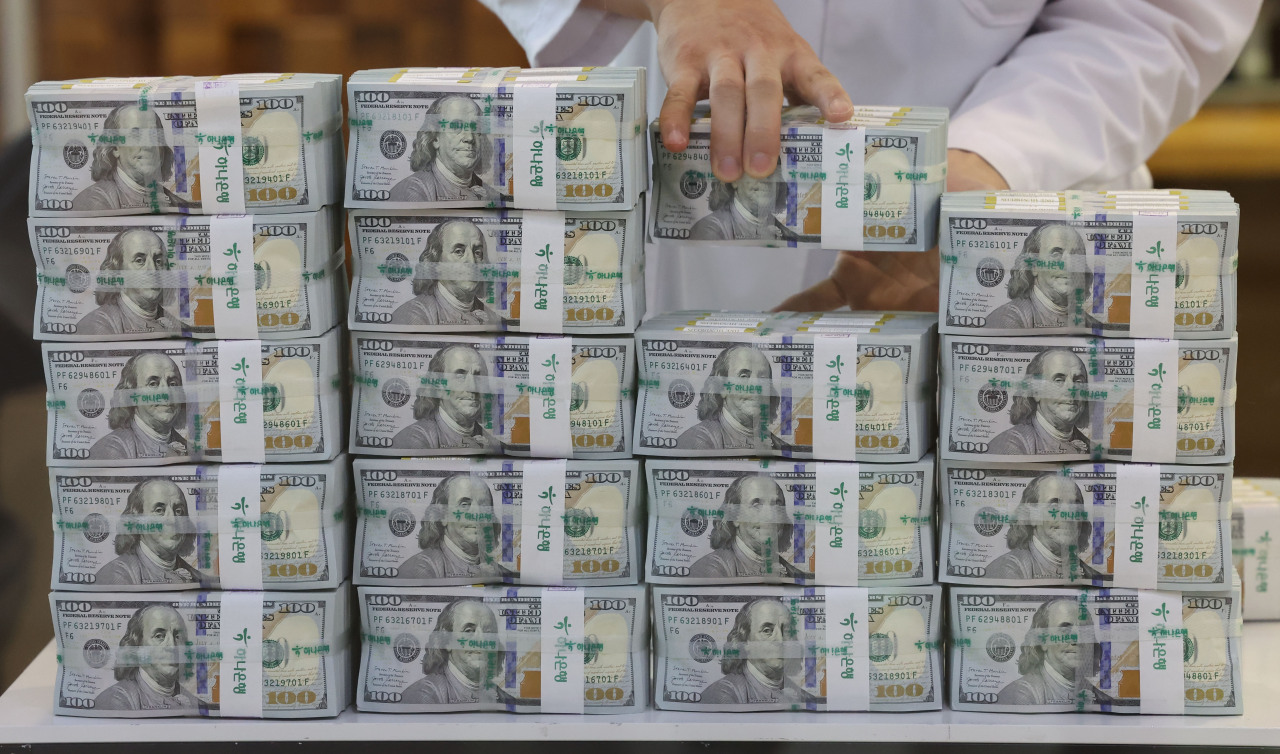
(Yonhap)
South Korea’s central bank said Tuesday that foreign reserves in June saw the sharpest decline since November 2008, when the country was dealing with the global financial crisis, feeding concerns of the weakening value of the Korean won against the US dollar.
“Korea’s official foreign reserves as of end of June 2022 amounted to $438.3 billion,” the BOK said in a statement. It was down $9.43 billion on-month, data tied to the statement showed.
Foreign reserves include securities and deposits denominated in overseas currencies, International Monetary Fund reserve positions, special drawing rights and gold bullion.
The latest data marked the sharpest on-month drop since November 2008, when the reserves saw a decline of $11.75 billion. It also marked the fourth consecutive month of decline, in which the reserves shed a combined $23.4 billion in the period.
The recent strong US dollar trend has led to a drop in the value of non-dollar assets. The Korean currency, which breached the 1,300-won mark last month for the first time since 2009, pushed financial authorities here to unload their dollar reserves to cushion the won’s plummeting value.
The size of the dollars the forex authorities buys and sells is classified.
Analysts say that the situation surrounding the forex reserves has yet to reach a “fatal stage,” financial authorities should still increase emergency reserves or pursue a new currency swap deal with the US.
“The forex reserves are falling due to the strong dollar trend around the world -- which has led to a drop in the value of in other currencies – and the forex authorities have been offloading dollars in the global market,” Park Sung-wook, an analyst at Korea Institute of Finance said.
“Korea’s current account balance has been in the black for the long-term and the economic fundamentals remain strong, so it can handle the forex reserve decline so far. But forex reserves are an important asset, which means we need to secure as much as we can through a possible unlimited currency swap deal with the US,” he added.
Korea’s latest $60 billion currency swap deal with the US signed in 2020 expired in December last year, as Asia’s fourth-largest economy showed stable recovery from the pandemic, backed by a strong rebound in exports and improved liquidity. The Bank of Korea and the US Fed signed the deal in March 2020 to funnel dollar liquidity into the Korean market to cushion the economy from pandemic woes. It had since extended the contract three times before expiration.
South Korea has yet to sign an unlimited currency swap deal with the US. The US Federal Reserve has standing liquidity swap lines since 2013 with the Bank of Canada, the Bank of England, the Bank of Japan, the European Central Bank, and the Swiss National Bank.
(
mkjung@heraldcorp.com)






